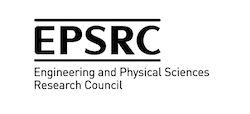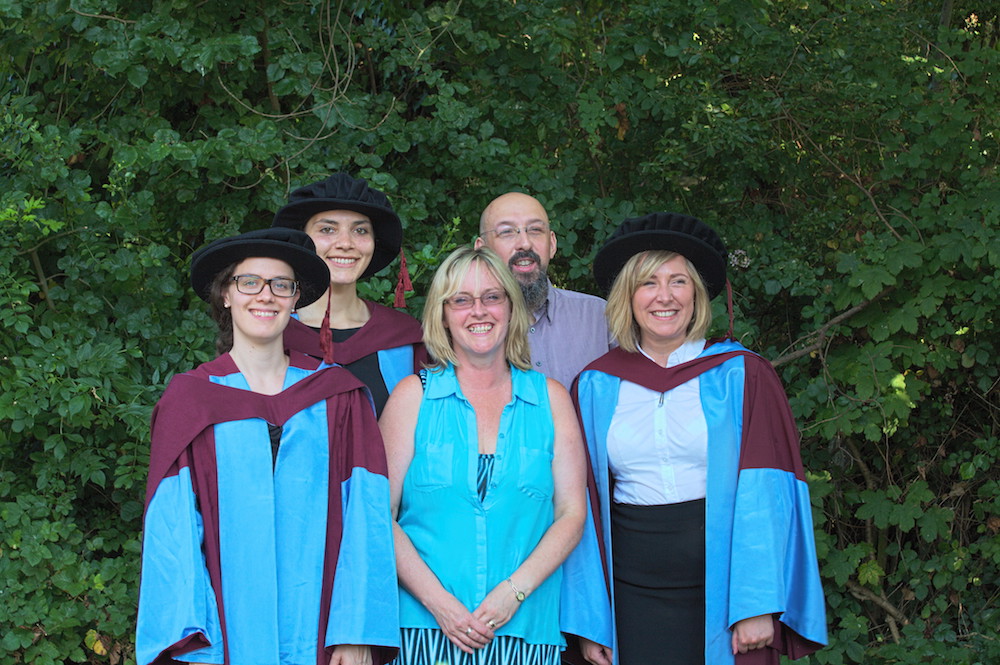
Nicki Lewin and Seth Bullock celebrating with ICSS graduates Elisabeth zu Erbach-Schoenberg, Camillia Zedan, and Gwen Palmer


The impact of the DTC has been both broad and fundamental. Our graduating students have moved on to a range of disparate careers, including academic, industrial, consultancy, financial and policy positions. Our graduates now span the globe working on an extensive array of projects from regulating banking systems to advising on oceanographic sustainability, from transport planning to swarm intelligence. Notable destinations (to date) include:
| Background | Total | ||||||
|---|---|---|---|---|---|---|---|
| Physics | 23 | Engineering | 20 | Computing | 20 | Biology | 10 |
| Mathematics | 12 | Earth Sciences | 12 | Politics | 3 | Chemistry | 2 |
| Social Science | 2 | Law | 1 | Archaeology | 1 | Enrolled | 106 |
| The disciplinary background experience of the 106 students recruited by the DTC. To date the DTC has a completion rate of 75.5%. | |||||||
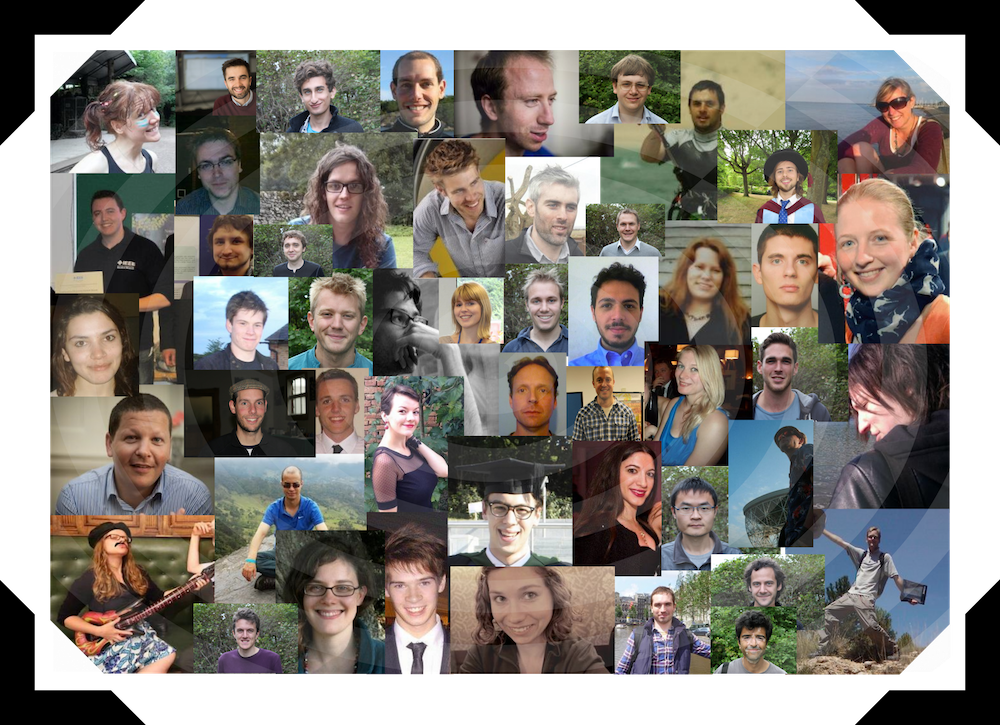
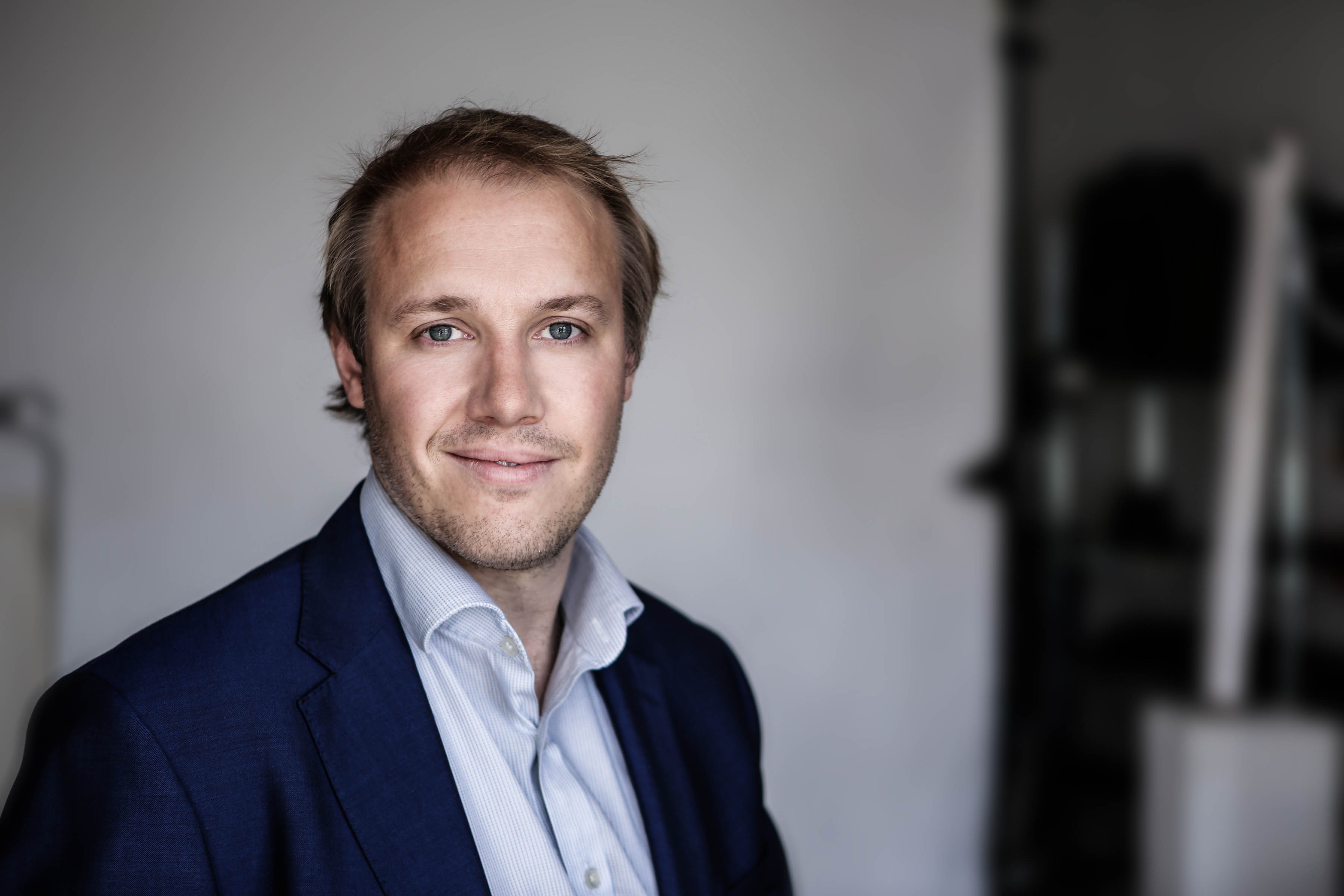
During my time at the DTC, I interned at Logical Glue, a machine learning start-up. I continued working for them part-time as a data scientist before becoming full-time Chief Product Officer, in charge of developing the machine learning cloud-based platform. From there I became Chief Executive Officer in 2018 with a now established platform for “explainable AI” in both finance and insurance, helping solve a lot of the regulatory concerns that come from the standard “black box” machine learning approaches.
I am with the software company IFS as their VP of AI and Robotic Process Automation, leading their journey to incorporate AI and machine learning into their software products around the world to make them more effective.
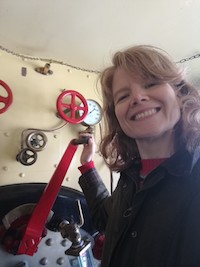 I use complex modelling methods in order to understand the dynamics of a vector-spread bacterial plant pathogen: phytoplasma. In particular, to investigate how the presence or absence of particular virulence proteins, whose impact on the plant and insect vector behaviour has been well-studied, influences the dynamics of the infection. This is to be achieved through the implementation of a multi-scale, mechanistic model, which includes explicit representation of both the insect vectors, and the plant hosts. My role is to design and code the model, and integrate it with GIS data, in order to investigate the infection dynamics in a real-world scenario.
I use complex modelling methods in order to understand the dynamics of a vector-spread bacterial plant pathogen: phytoplasma. In particular, to investigate how the presence or absence of particular virulence proteins, whose impact on the plant and insect vector behaviour has been well-studied, influences the dynamics of the infection. This is to be achieved through the implementation of a multi-scale, mechanistic model, which includes explicit representation of both the insect vectors, and the plant hosts. My role is to design and code the model, and integrate it with GIS data, in order to investigate the infection dynamics in a real-world scenario.
John Innes Centre, Norwich.
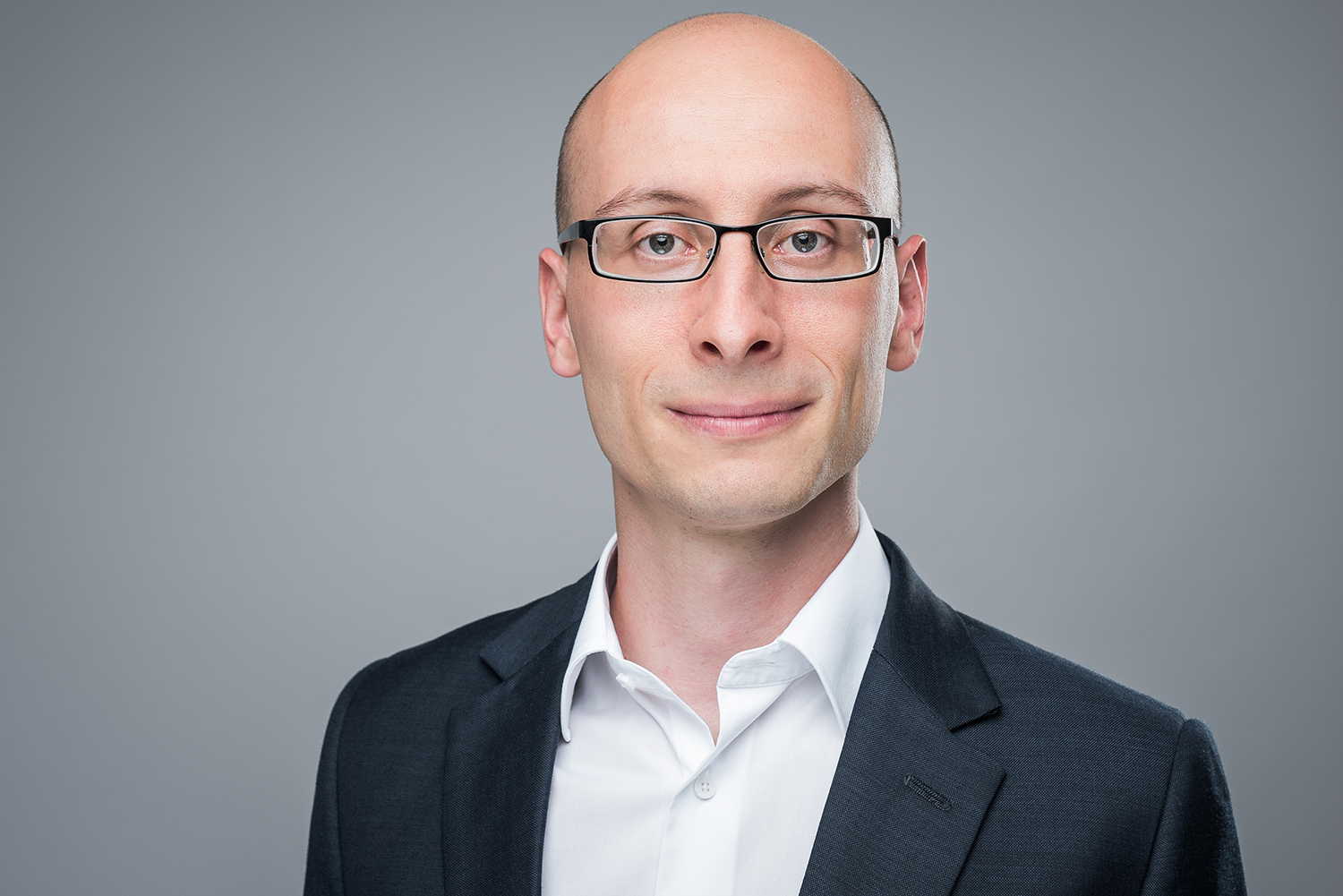 Since leaving the DTC, I joined a small simulation consulting firm in London for three years, building simulation models for aerospace and defence clients. Two years ago, I joined McKinsey to push simulation as the perfect consulting tool, helping mining and supply chain clients and creating an internal group of simulation enthusiasts. Recently, I started my own simulation consultancy, building largely process models to support decision making. As you can see, I fell in love with simulations during my PhD and turned it into a career that I enjoy every day.
Since leaving the DTC, I joined a small simulation consulting firm in London for three years, building simulation models for aerospace and defence clients. Two years ago, I joined McKinsey to push simulation as the perfect consulting tool, helping mining and supply chain clients and creating an internal group of simulation enthusiasts. Recently, I started my own simulation consultancy, building largely process models to support decision making. As you can see, I fell in love with simulations during my PhD and turned it into a career that I enjoy every day.
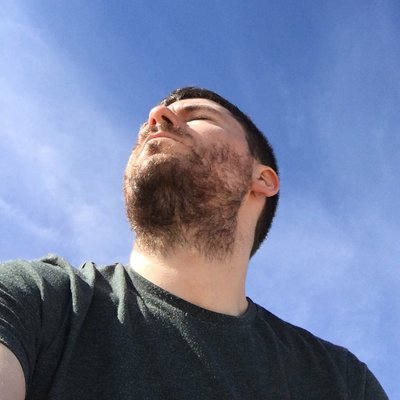
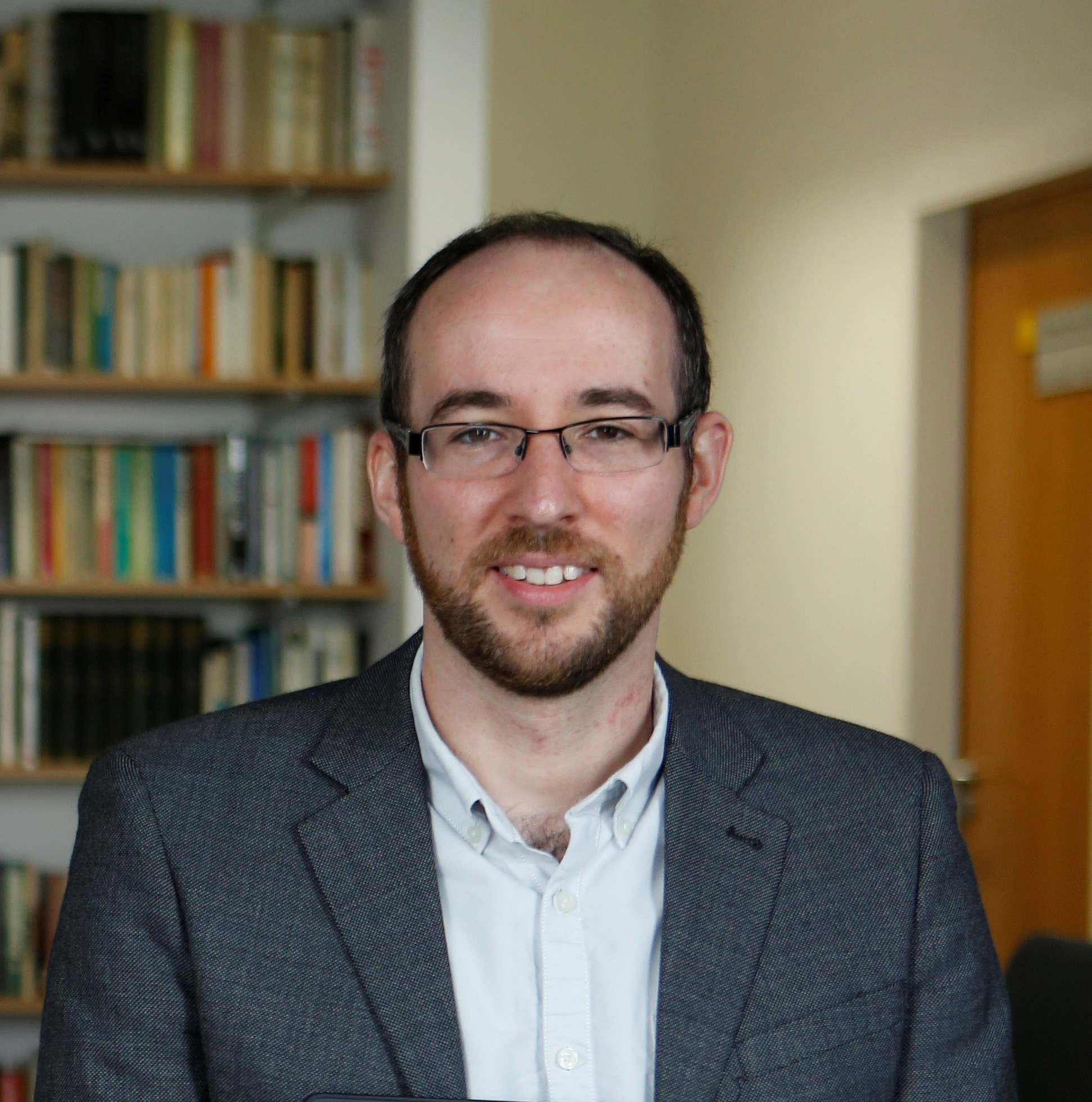 I am now employed as a Research Software Engineer at the University of Southampton. My experience with the DTC and my PhD showed me the importance of high-quality, accessible and sustainable research software across a wide range of disciplines. This has inspired me to pursue a career in the new and expanding field of Research Software Engineering, to try and increase the quality of code throughout research.
I am now employed as a Research Software Engineer at the University of Southampton. My experience with the DTC and my PhD showed me the importance of high-quality, accessible and sustainable research software across a wide range of disciplines. This has inspired me to pursue a career in the new and expanding field of Research Software Engineering, to try and increase the quality of code throughout research.
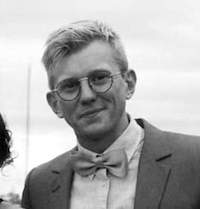
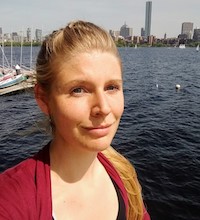 Maike Sonnewald is a postdoctoral associate at the Massachusetts Institute of Technology, the University of Texas at Austin and a visiting postdoctoral associate at Harvard University. Dr. Sonnewald earned an M.Sc. in Physical Oceanography (magna cum laude), and a PhD in Complex Systems Simulation and Physical Oceanography from the University of Southampton and the National Oceanography Center. Her research focus is on developing pathways between numerical simulations, data and theory. The intersection between theoretical inference and a fair exploration of numerical tools provide exciting pathways for progress. This is particularly exciting as a means to move oceanographic numerical work into a probabilistic framework, which facilitates direct insight from observational work from a Bayesian statistical framework.
Maike Sonnewald is a postdoctoral associate at the Massachusetts Institute of Technology, the University of Texas at Austin and a visiting postdoctoral associate at Harvard University. Dr. Sonnewald earned an M.Sc. in Physical Oceanography (magna cum laude), and a PhD in Complex Systems Simulation and Physical Oceanography from the University of Southampton and the National Oceanography Center. Her research focus is on developing pathways between numerical simulations, data and theory. The intersection between theoretical inference and a fair exploration of numerical tools provide exciting pathways for progress. This is particularly exciting as a means to move oceanographic numerical work into a probabilistic framework, which facilitates direct insight from observational work from a Bayesian statistical framework.
Maike is involved in a range of modeling studies including the ECCO state estimate, CBIOMES and OCCIPUT from the French MOPGA project. This work focuses on exploring how modeling tools impact our understanding of the underlying dynamics, where Dr Sonnewald has demonstrated the utility of machine learning approaches to understand decadal dynamics. This understanding can be applied to assess future changes under climate change. Her work is targeted at developing understanding of the system's complexity, with the goal of harnessing this insight to understand variability and likelihood of future change.
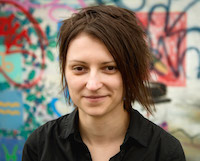 I am currently working on neural-network based self-monitoring algorithms that allow robots to learn about their environment in an unsupervised fashion and to identify new objects and situations. The work is at the University of Bristol and in partnership with Thales, who develop autonomous systems for the transport, space and other industries, allowing us to tackle both academic and applied science questions.
I am currently working on neural-network based self-monitoring algorithms that allow robots to learn about their environment in an unsupervised fashion and to identify new objects and situations. The work is at the University of Bristol and in partnership with Thales, who develop autonomous systems for the transport, space and other industries, allowing us to tackle both academic and applied science questions.
The most prominent outreach activity I did was creating a game based on my work in multi-agent systems, The Hive Mind. In the game, player uses a visual interface to program a robot swarm that builds structures on an alien planet. We presented the game at the 9th European Conference on Game-Based Learning (ECGBL 2015) and at the University of Southampton open day in 2015.
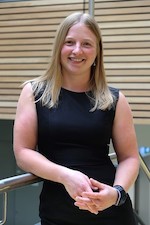 Alex Diem
Alex Diem
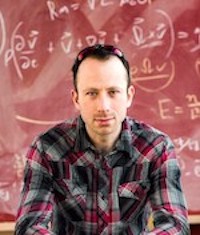 I am currently a postdoc in the Division of Geological and Planetary Sciences at California Institute of Technology. Broadly speaking, my research focus is the origins of life, and the thermodynamics of complex systems. My PhD and fellowship research focussed on the thermodynamics of convection and reaction-diffusion systems. I still continue to work in those areas, but am also extending previous work to explore whether associative learning can emerge in chemical systems relevant to the origins of life.
I am currently a postdoc in the Division of Geological and Planetary Sciences at California Institute of Technology. Broadly speaking, my research focus is the origins of life, and the thermodynamics of complex systems. My PhD and fellowship research focussed on the thermodynamics of convection and reaction-diffusion systems. I still continue to work in those areas, but am also extending previous work to explore whether associative learning can emerge in chemical systems relevant to the origins of life.
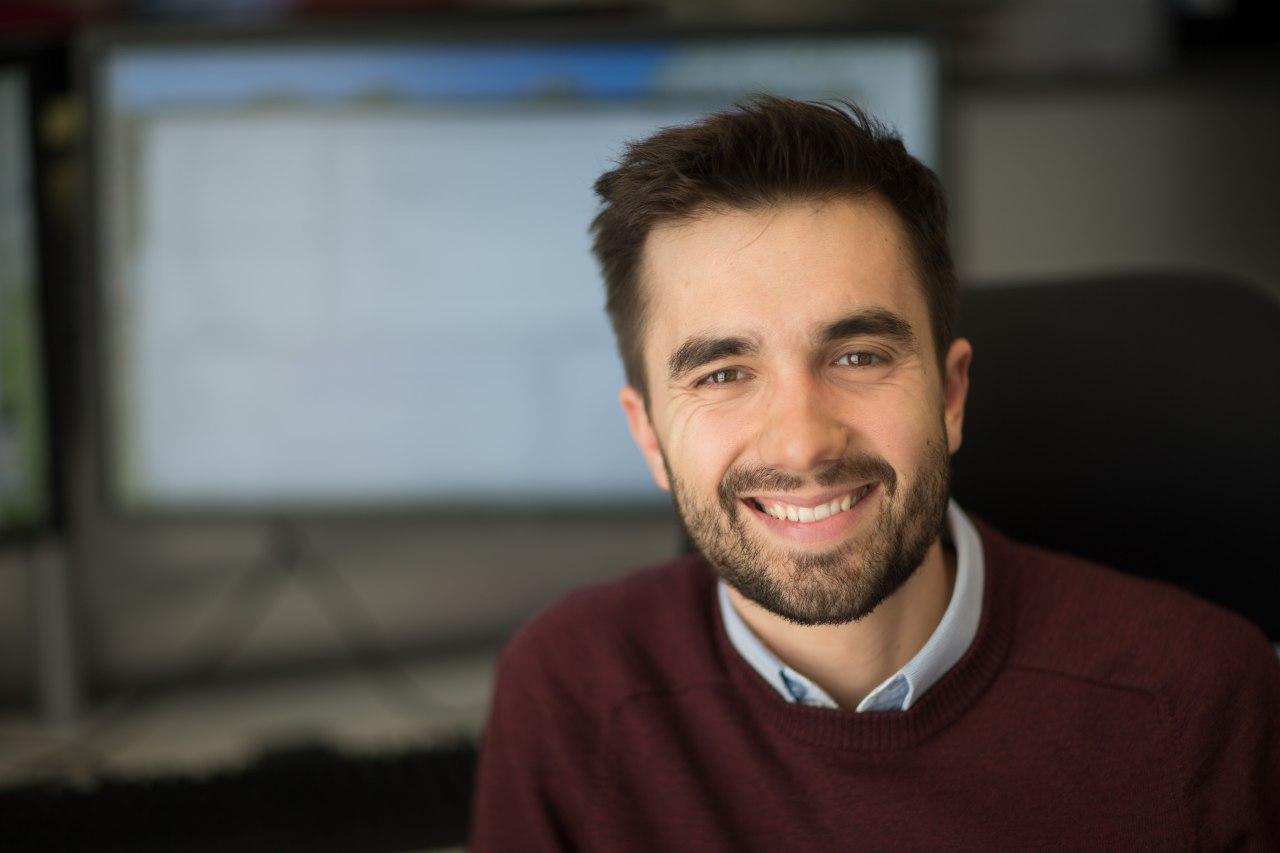 I am currenlty a Senior Machine Learning Research Scientist at Mind Foundry, an Oxford University startup that span out of the Machine Learning Research Group at the Engineering Department. The DTC gave me both the preparation and the academic connections to get a job as a Postdoctoral Research Fellow at Oxford University.
I am currenlty a Senior Machine Learning Research Scientist at Mind Foundry, an Oxford University startup that span out of the Machine Learning Research Group at the Engineering Department. The DTC gave me both the preparation and the academic connections to get a job as a Postdoctoral Research Fellow at Oxford University.
 Massimo StellaAfter submitting my thesis in September 2017, I started a postdoc in Data Science and Health at Fondazione Bruno Kessler, a prominent institution in Italy for artificial intelligence and data science. I worked in the newly created lab of Complex Multi-layer Networks led by Dr. Manlio De Domenico. I learned a great deal about automatic language processing and started gaining experience with machine learning techniques for analysing Big Data related to language and social media, beyond network models.
Massimo StellaAfter submitting my thesis in September 2017, I started a postdoc in Data Science and Health at Fondazione Bruno Kessler, a prominent institution in Italy for artificial intelligence and data science. I worked in the newly created lab of Complex Multi-layer Networks led by Dr. Manlio De Domenico. I learned a great deal about automatic language processing and started gaining experience with machine learning techniques for analysing Big Data related to language and social media, beyond network models.
After one year, I secured a remote consulting job related to language modelling and used that as an opportunity for starting my adventure in data science and scientific consulting. As a complex data scientist and founder of Complex Science Consulting (www.compscicons.net), my research focuses on multi-relational or multiplex network models for detecting patterns in real-world systems such as human cognition and language.
One of the flagship projects of my new research line includes Complex Forma Mentis (www.complexmentis.com), a data-driven approach for detecting and comparing the students, teachers and researchers' perceptions of STEM subjects as knowledge networks. In 2017, the prototype phase of the project involved 159 students and 59 researchers and the resulting data was presented at the Network Science and Education Symposium 2018 at NetSci18.
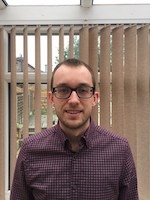 James HeppellAfter my PhD, I collaborated with Cranfield University (G. Kirk), Japan International Research Centre for Agricultural Sciences, (M. Wissuwa) and the International Rice Research Institute, (S. Beebout) to address questions related to zinc uptake by rice plants.
James HeppellAfter my PhD, I collaborated with Cranfield University (G. Kirk), Japan International Research Centre for Agricultural Sciences, (M. Wissuwa) and the International Rice Research Institute, (S. Beebout) to address questions related to zinc uptake by rice plants.
I currenlty support the toxicology team at Cyprotex, writing bespoke software to automate and improve their workflow. In addition to maintaining our inhouse software concerning compound registration, assay management and results extraction, I’m leading new improvement initiatives to deal with future workflow demand.
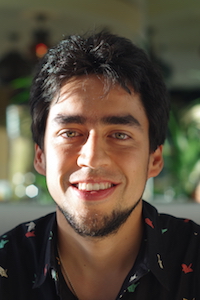 I'm currently a Research Fellow at the University of Southampton, working as part of a UK based project known as Skyrmion Project. This is a collaborative project of 5 universities in the UK: Cambridge, Durham, Oxford, Warwick and Southampton. The project aims to develop a working magnetic device based on skyrmions and to foster research on magnetic materials capable of hosting skyrmions. More information here: https://www.skyrmions.ac.uk/
I'm currently a Research Fellow at the University of Southampton, working as part of a UK based project known as Skyrmion Project. This is a collaborative project of 5 universities in the UK: Cambridge, Durham, Oxford, Warwick and Southampton. The project aims to develop a working magnetic device based on skyrmions and to foster research on magnetic materials capable of hosting skyrmions. More information here: https://www.skyrmions.ac.uk/
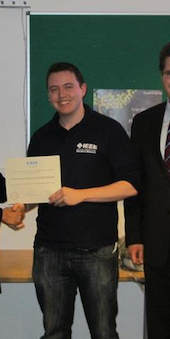 I've remained working in the same field as my PhD research, but now applying this knowledge and skills professionally.
I've remained working in the same field as my PhD research, but now applying this knowledge and skills professionally.
I spent five years working with SYSTRA, a transport planning consultancy based in Woking, mainly working with Hampshire County Council and Transport for London on transport scheme modelling and appraisal. Aspects included planning a new 'clean air zone' for Southampton, improvements to M3 Junction 9 and smart motorways programme, and development of a new cycling demand forecasting model for London.
In 2018 I moved to Siemens to work jointly with Transport for London and the University of Southampton (including my former DTC supervisor) on the development of a new traffic control system which will be deployed in cities internationally in the coming years.
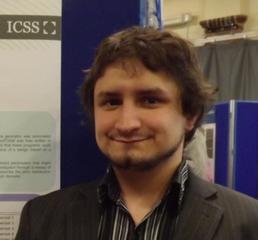 Aleksander Dubas
Aleksander Dubas
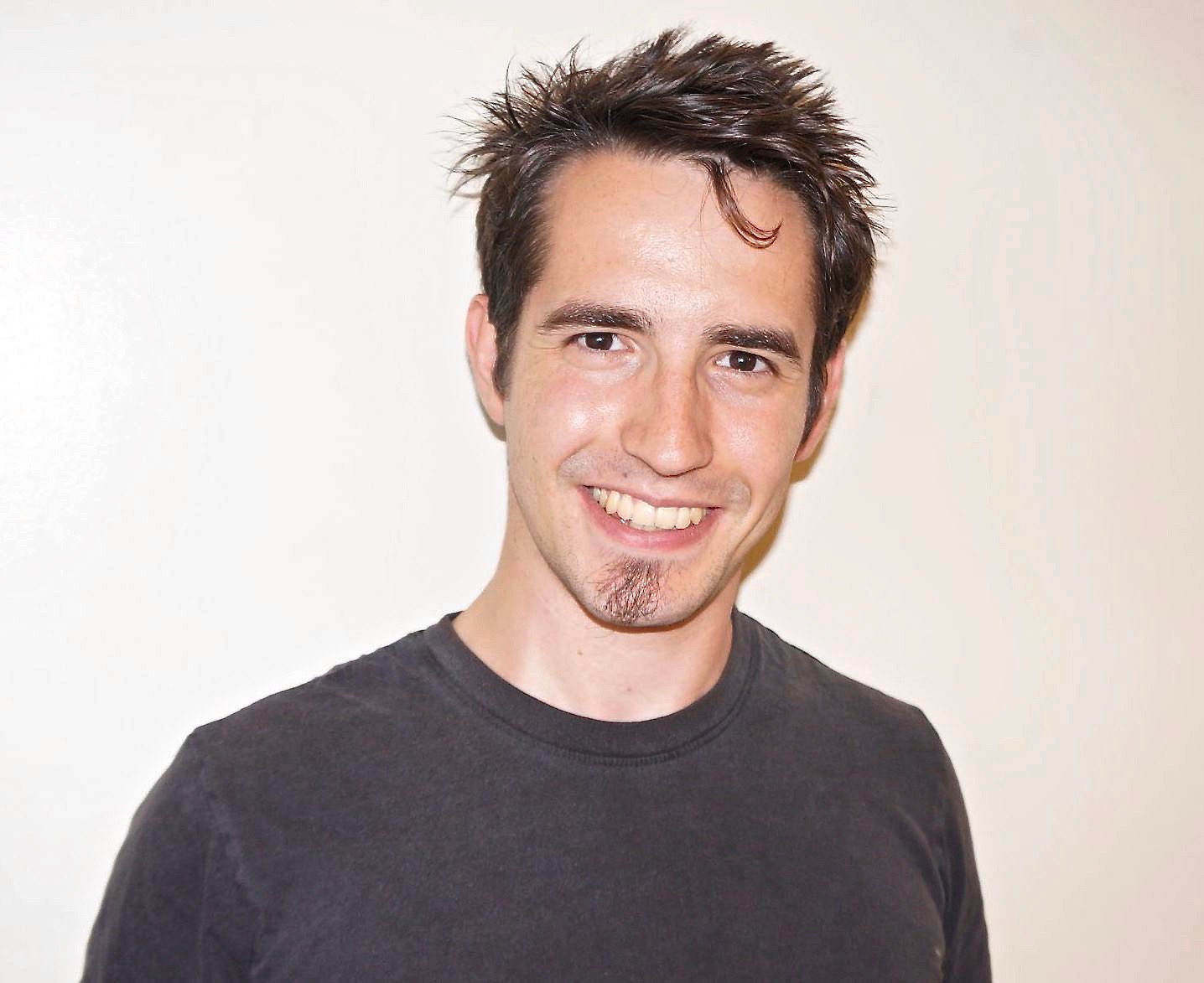 Miguel Gonzalez
Miguel Gonzalez
Other highlights of my work at Flowminder.org include projects in Haiti, El Salvador, and countries in Sub-Saharan Africa. These projects were done in partnership with institutions such as the World Bank, the Inter-American Development Bank, and the World Food Program. My role as a Lead Analyst and Project Manager included research, development, and implementation of sophisticated spatial clustering algorithms that greatly increase the resolution of CDR-based commuting-pattern analyses in urban areas.
